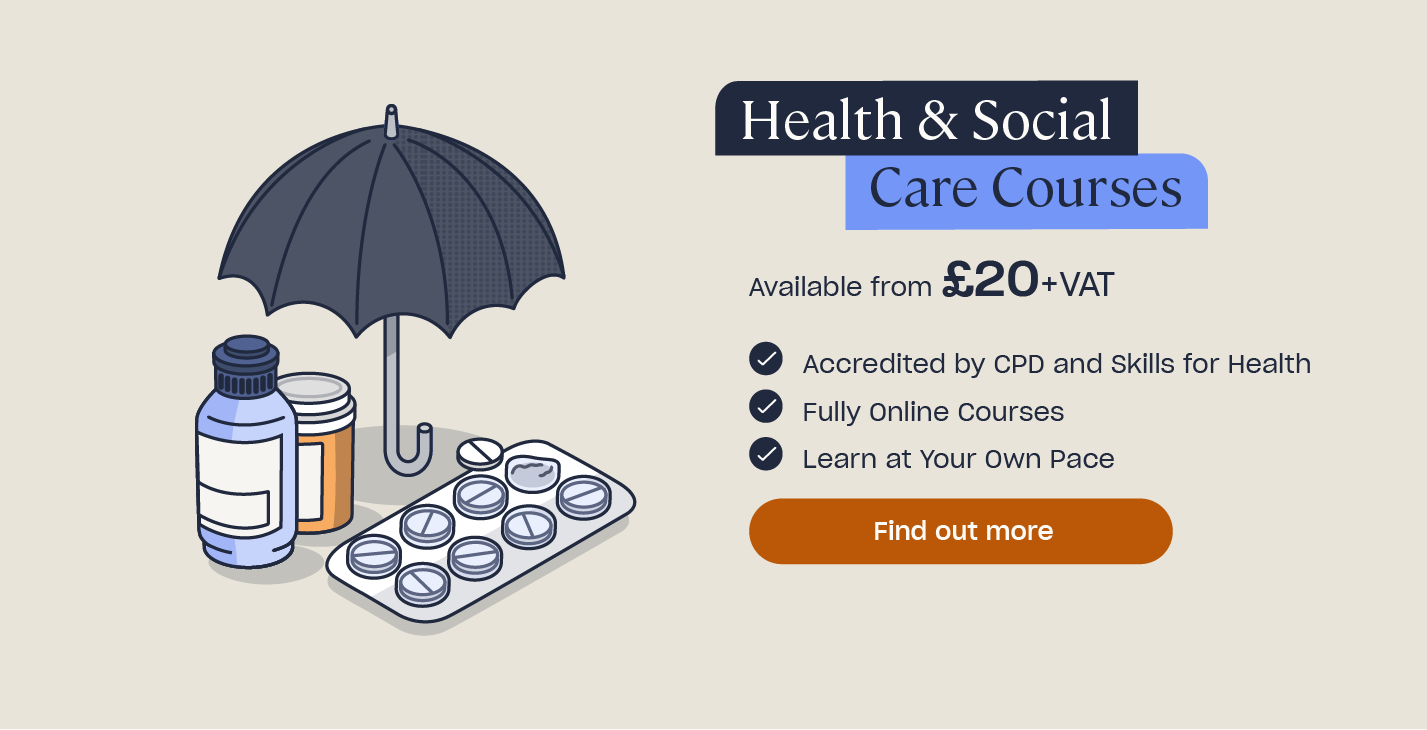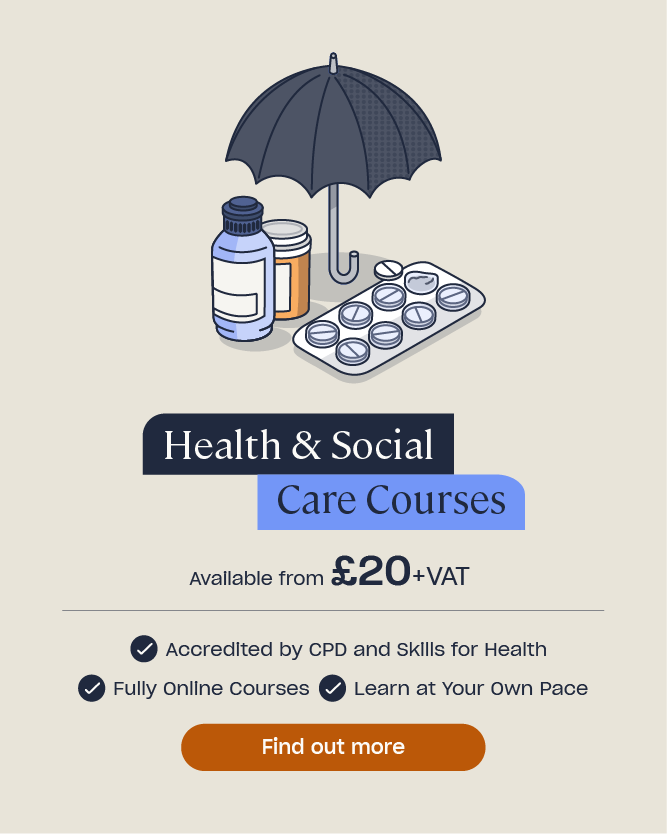Careers in Health and Social Care
The scope of the health and social care sector is vast, and is consistently growing and adapting to meet the needs of the population. It is estimated that the sector employs one in ten of the working population, with almost three million people in positions. Due to the wide-ranging scope of the sector, it offers a wide variety of job roles, and can be a popular choice for those wishing to start their careers.
If you are considering a career in health and social care, you may want to know a little bit more about the options available and the different routes into the sector. It’s also crucial that you understand the skills required and some of the typical responsibilities, so that you can reach an informed conclusion about which role may be best for you. In this article, we will outline all of these and explain how you can get started in your health and social care career.
What Jobs Can You Get in Health and Social Care?
Health and social care is an industry based on hard work and commitment. However, it is also one of the most rewarding. We all need care and support at some point in our lives, and being able to offer that support to people when they need it most comes with a huge sense of fulfilment.
If you are looking to get into the sector at an entry level, some popular jobs available to you could include:
- Care worker. This role can vary on a daily basis, but it might typically involve supporting people with social and physical activities, eating and drinking, shopping and getting dressed, personal care, monitoring conditions and helping with medication. Care workers can be positioned within care homes or out in the community offering domiciliary care.
- Personal assistant. This is similar to a care worker, except that you will be employed directly by an individual and you will usually support them in their own home or go out into the community. Your role is crucial for helping the individual to live as independently as possible, and you will be able to provide the consistent and ongoing support that they require.
- Activities coordinator. This is a rewarding role that involves helping people to take part in activities. Your main role will be to organise activities, and you will always work in a person-centred way – talking to people about what activities they enjoy, tailoring the activities accordingly and supporting them to take part. You will be crucial in bringing people together and offering fulfilment. You might be positioned in a care home, a day centre, a person’s own home or in the community. Find more about how to become an activities coordinator here.
- Rehabilitation worker. This role involves helping people to live more independently after they have been ill or had an accident. You may be required to teach people daily life skills, organise activities for them, provide advice on certain equipment and complete assessments about the type of care and support they need. Although an entry level job, you may still need experience of working with adults in need in the past.
- Advocacy worker. This role involves promoting and supporting individuals’ rights, including helping them to access services and being involved in planning their care and support. You will help people to represent themselves (self-advocate), speak up on their behalf and help them to make informed decisions. Although an entry level job, you may still need experience of working with adults in need in the past. To learn more about advocacy workers take a look at our article: What is Advocacy in Health and Social Care?
- Social prescriber. Social prescribing is a relatively new role, and it does not currently have any entry requirements. The role can involve finding local support services for people to go to, referring people to a range of activities and assessing the support they need. You can choose to specialise in one specific area, such as helping people with learning disabilities to access services in the community. You will usually be positioned in a GP surgery, health centre or community centre.
- Supporting roles, such as in a catering, administrative or maintenance role in a care home. If you undertake a role in one of these areas, you will be responsible for the smooth running of organisations and ensure that individuals always have a suitable and safe environment to be in.

Health and Social Care Skills
As we have said, working in health and social care can be incredibly rewarding, but it can also involve a lot of hard work. Before taking the leap into the sector, you may want to think about your current skill set, read job descriptions carefully and decide which one best matches you and your skills.
Generally, some vital skills that need to be demonstrated by those working in the sector include:
- Communication skills. Being able to communicate is one of the most important skills you can have in health and social care. Whether it be communicating with service users, their families or friends, other organisations or your colleagues, you must be able to communicate effectively to ensure individuals get the best care.
- Time management. You will have a lot to do, with lots of different and competing priorities, so being able to manage your time effectively is essential.
- Resilience. You may encounter challenging situations and see things that are upsetting. Developing your resilience is important for being able to handle such situations.
- Adaptability. Anybody who works in health and social care will be able to tell you that no two days are the same. You will likely have ever-changing demands placed on you, so make sure that you can easily adapt.
- Emotional intelligence. Unwavering empathy, compassion and selflessness is what makes the health and social care workforce so incredible. You must be able to put the needs of service users first and provide them with the high-quality care that they deserve.
- Teamwork. It is essential that you are able to successfully work in a team and with other people. You will have many demands placed on you, so knowing how to work effectively with others will help you to get everything done.
- Being able to fulfil legal obligations. All those working within the sector have a legal duty of care towards individuals they support, and your care must always be person-centred.

Roles and Responsibilities of Health and Social Care Workers
Your specific roles and responsibilities will depend on your job role and its associated job description. Typically, however, your responsibilities will centre around the following:
- Communicating with a range of other people and services, such as GP surgeries, hospitals and other care organisations, to ensure that there are clear plans in place for a person’s care.
- Writing, reviewing and understanding care plans. These must always be up to date to ensure they capture all necessary information about a person’s care. Typical information you might find in a care plan includes details of how a person’s care and support should be delivered and their medication requirements.
- Providing person-centred care. You are responsible for providing care that is person-centred and takes the needs, wishes and preferences of individuals into account.
- Helping individuals with daily activities. This might include getting dressed, eating and drinking, washing and personal care, moving around, taking care of personal affairs and administering medication.
- Researching and planning activities. You may spend a portion of your day looking into new activities, planning logistics and contacting people to ensure activities can be effectively facilitated.
- Resolving conflicts. Health and social care environments can often be highly emotive places. Good conflict resolution processes need to be in place, and you will need to be able to handle and resolve conflicts effectively, to ensure that outcomes are reached that everyone is happy with.

How to Get Into Health and Social Care
If you are considering a career in health and social care but you’re not sure where to start, there are many options available to you.
If you’re new to the sector, there are lots of routes and entryways that do not necessarily require previous work experience or qualifications. Many of the jobs we have outlined above fall into this category although, as discussed, it is preferential for certain positions if you have some experience of interacting with adults in need. This experience could come from a previous social care role, any volunteering you have done or if you have cared for a family member who was in need.
All roles will involve a thorough training process, as it is vital that you have the skills and knowledge to be able to care for people safely and appropriately. Many entry level roles will require you to complete the Care Certificate, which has been helping to standardise the training of people working in the health and social care sector since its introduction in 2015. If you are required to complete this as part of your role, this will be made clear to you and available when you take up the role.
You may choose to apply directly to a job you have seen advertised, volunteer to gain some experience or complete a relevant apprenticeship. Whichever option you choose, beginning a career in the sector will open you up to various opportunities for progression and growth. Many of the jobs we have discussed enable you to also complete qualifications, including a range of diplomas and NVQs.
If you are interested in regulated professional roles in the sector, such as becoming a social worker, occupational therapist, counsellor or nurse, you will need to achieve relevant qualifications in the specific area, such as an undergraduate or postgraduate degree. If this is something you are interested in, take a look on a range of university websites to look at their entry requirements and whether this would suit you.

Working in health and social care involves a lot of hard work, but it is also one of the most rewarding sectors you can be a part of. If you are good at communicating, managing your time and working as part of a team, and you are passionate about making a difference in people’s lives, a career in health and social care might just be the perfect fit for you.
Further Resources:
- Health and Social Care Courses
- Interview Questions for Care Workers
- How to Support Professional Development in Health and Social Care
- Alternative Careers for Healthcare Professionals
- Using a Personal Development Plan in Health and Social Care
- Guidance on Complaints Procedures in Health and Social Care
- How to Get a Job in Mental Health
- What is Skills for Care?
- How to Find the Right Career for Me







